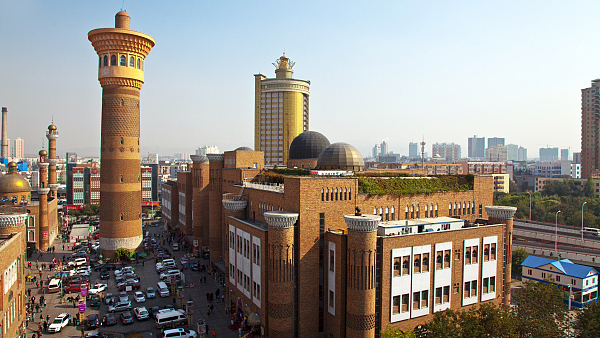05:04

For decades, it was China's most terror-hit region, where thousands of lives were lost in violent attacks. Things are different today in Xinjiang Uygur Autonomous Region. On Monday, authorities there spoke about development in Xinjiang, which they say now makes the area a travel destination. The central government earmarked nearly 400 billion yuan (about 56.82 billion U.S. dollars) in transfer payments to support Xinjiang's development. There's an additional 15 billion yuan or so from 19 provinces and cities. Public welfare is a focus as 70 percent of the local budget for general affairs is spent on that cause. But the accusations against Xinjiang's human rights situation have ignored the economic development figures we just heard. So what's the role of a sound economy in ensuring human rights? Also, China's policies in Xinjiang have been criticized as religious persecution. Allegations also emerged that many mosques have been torn down. And the officials have denied that. What's the observation of Xinjiang's religious freedom from outside China? Ms. Dai Ruijun of the Institute of International Law at the Chinese Academy of Social Sciences, and Sultan Hali, a defense and diplomacy analyst speaking from Islamabad via Skype, give their opinions and share their insights on Xinjiang.